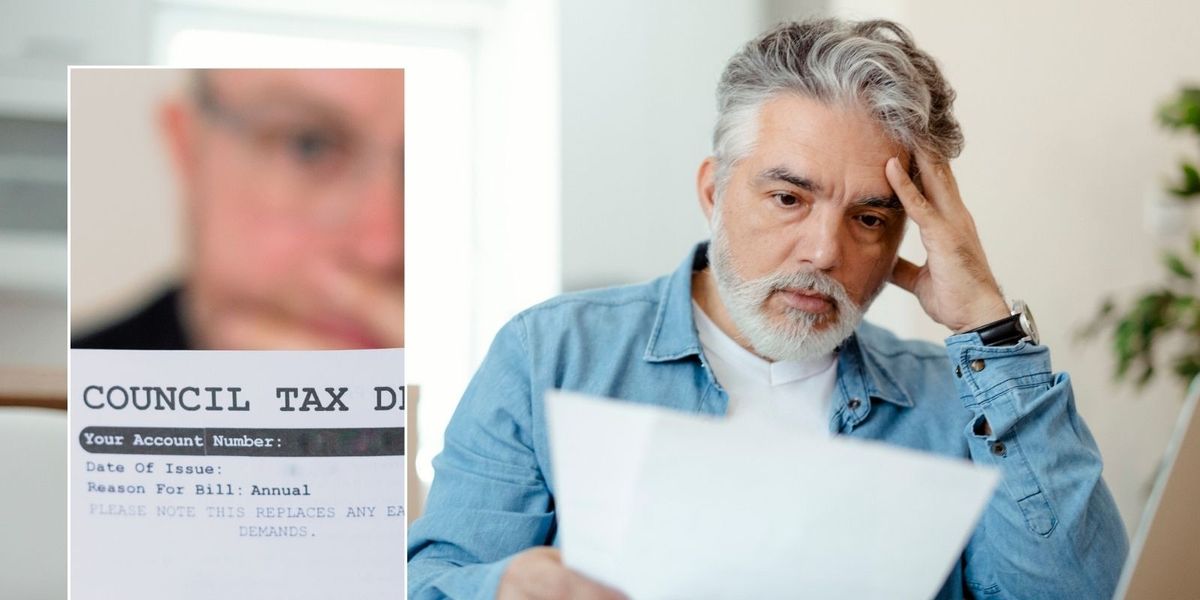Millions of pensioners and single-person households across the UK could face significant financial strain if local councils are granted the power to scrap the single-person council tax discount.
This potential move, proposed by the County Councils Network, aims to address a looming £54billion shortfall in council finances.
However, the move threatens to hit vulnerable groups particularly hard amidst rising living costs. Currently, 8.4 million people, including roughly 4 million pensioners, benefit from a 25 per cent reduction on their council tax bills.
The abolition of this discount could have far-reaching consequences for those already struggling to make ends meet, especially older individuals living alone on fixed incomes.
New research from Lottie into the state of care in 2024 has found that 76 per cent of care seekers are already struggling to fund elderly care services. Almost two-thirds of elderly care is funded by personal savings.
Will Donnelly, Co-Founder and CEO at Online Care Finder Lottie told GB News: “Now more than ever, we are seeing family members dip into their savings to help their elderly loved ones find care.
“The reduction in council tax discounts will not just impact older generations but also place greater financial strain on family members who support them.”
The County Councils Network (CCN), representing England’s largest councils, has urged the Chancellor to allow local authorities to scrap the single-person discount in their areas. This proposal comes as councils face a predicted £54bn black hole in their finances.
The CCN warns that even with maximum council tax increases, authorities would still face a £16.4billion shortfall over the next five years. While the Chancellor has ruled out abolishing the discount nationally, sources indicate that devolving this power to local councils remains a possibility.
Whilst councils could see a boost in revenue, estimated at around £3billion by the Institute for Fiscal Studies, this would come at the expense of some of society’s most vulnerable members.
The move could push more pensioners and single-person households into financial hardship, potentially increasing demand for social services.
Donnelly explained the speculation around removing council tax discounts comes as another cost-saving strategy at the expense of older generations, especially after the news about the Winter Fuel Payments.
Without the discount, a retiree with a £1,500 annual council tax bill who currently pays £1,125 (with 25 per cent discount allowance) would be responsible for the total £1,500, with no corresponding increase in income.
He said: “It’s extremely concerning to see the number of older adults expected to struggle in the coming months. It isn’t enough to comment on these findings and speculations – right now, we need to evoke real change and place pressure on the Government to support those most vulnerable within our society.”
Donnelly calls for the Government and local councils to seek targeted solutions that balance funding needs with the financial wellbeing of older adults. He stressed the importance of supporting vulnerable members of society.
Caroline Abrahams, Charity Director at Age UK, highlighted the potential impact on older people living alone. She told GB News: “We know that household bills are a heavy burden for older people who live alone. Fixed costs, such as heating and repairs, do not reduce if only one person lives in a property and meeting these from a single income already strains many budgets.”
She warned that abolishing the single person discount for Council Tax could “absolutely shatter” the finances of low-income pensioners, especially if combined with the loss of Winter Fuel Payments.
Abrahams emphasised the importance of every penny for those on low incomes and urged anyone struggling to contact Age UK for advice and a free benefits check.
The potential scrapping of the single-person council tax discount presents a complex challenge for both vulnerable groups and local authorities.
While it could provide much-needed revenue for struggling councils, it risks pushing many pensioners and single-person households into financial hardship.
LATEST DEVELOPMENTS:
Donnelly added: “Allowing councils to change the single-person discount without nationwide regulation could lead to unfair financial burdens on retirees. Over recent years, we have seen a sharp rise in poverty in older generations – with 1 in 5 adults over 65 living in poverty.
“The Government and local councils must review the impact of cancelling the single-person discount and how it could affect those on low or fixed incomes—including vulnerable members of society and millions of retirees across the UK.”
The single-person council tax discount currently provides significant relief for those living alone. On an average band D property, this 25 per cent reduction amounts to savings of around £543 this year.
For those on low or modest incomes, especially pensioners, this reduction can make a substantial difference in their ability to manage essential expenses such as heating and groceries.

